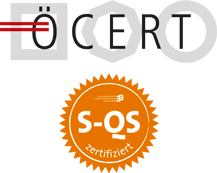What is Visceral Therapy?
We live as long as our inner organs are functioning.
We can move as long the bones, ligaments and muscles are functioning.
Visceral Therapy is a holistic treatment method focused on the interconnection between the musculoskeletal system and the internal organs.
The musculoskeletal interactions directly determine the position of the organs in the body, and, reciprocally, the internal organs have a strong effect on the health of the spine, pelvis, ribs, shoulder girdle, muscles and fascia.
Poor posture, scoliosis, surgery, inflammation of tissues and organs, malnutrition or emotional stress can easily cause dysfunction of various organs. As a consequence, strained organs build up tension that is transferred to the musculoskeletal system.
For example, inflammation of the bladder or constipation may lead to problems with the hip joint or lower back.
Treatment Concept and Aim of Visceral Therapy
Anamnesis - Diagnosis – Sector Treatment – Lesion chain
The integrative manual treatment concept of Visceral Therapy is based on a detailed review of the medical history of the patient, which is subsequently verified by various diagnostic methods with the aim to treat the existing sequences of restrictions = lesion chains.
A lesion chain consists of related sectors which are subjected to specific treatment procedures that are based on anatomical, topographic, physiological and functional sympathetic and parasympathetic connections.
Aim of Visceral Therapy
To develop the abilities of physiotherapists and doctors to diagnose and treat the musculoskeletal system by using of the organ system and to understand better the functional connections between these two systems.
